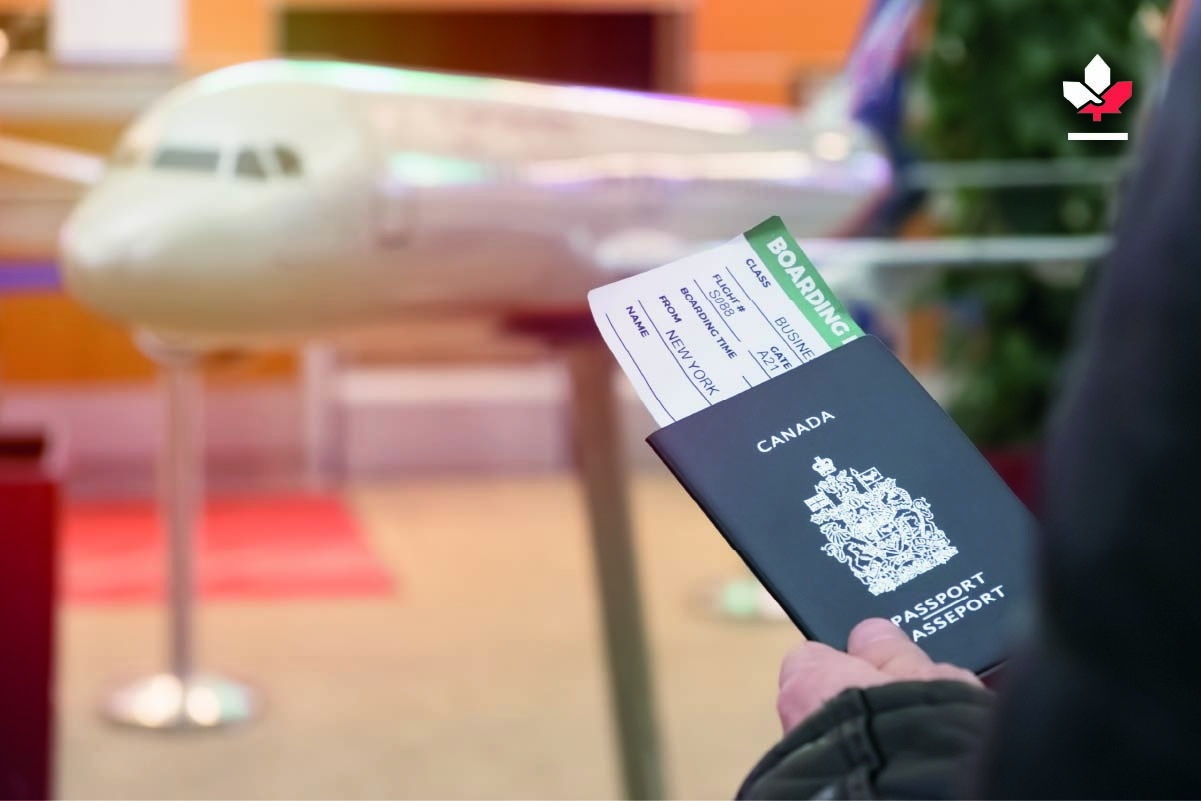How to Become a Canadian Citizen
April 24, 2023
|
Becoming a Canadian citizen is a dream for many individuals worldwide. Canada is well-known for its welcoming attitude towards immigrants, strong economy, and high quality of life. In this comprehensive guide, I will walk you through everything you need to know about how to get Canadian citizenship, from understanding the benefits of Canadian citizenship to preparing for the citizenship test and the oath ceremony. By the end of this article, you will be well-equipped to begin your journey toward becoming a proud Canadian citizen.
Canadian citizenship is more than just a legal status; it represents a sense of belonging and a shared commitment to the values, rights, and responsibilities that define Canada as a nation. As a Canadian citizen, you become part of a diverse and inclusive society that values equality, multiculturalism, and respect for all. In this section, we will explore what it means to be a Canadian citizen and the benefits of it.
What it Means to be a Canadian Citizen

Being a Canadian means embracing the values and traditions that have shaped Canada throughout its history. It means respecting the rights and freedoms of all individuals, regardless of their background or beliefs. It means contributing to the prosperity and well-being of your community and your country and upholding the democratic principles that define Canada as a nation. As a Canadian citizen, you are an essential part of a society committed to building a better future for all. Canadian citizenship also has numerous tangible benefits, rewarding the journey toward citizenship. Some of the most significant benefits include the following:
Right to Vote and Run for Office
As a Canadian citizen, you can participate in the democratic process by voting in federal, provincial, and municipal elections. You can also run for public office and directly impact the decisions shaping your community and country.
Social Benefits
Canadian citizens can access various benefits, including healthcare, education, and social assistance. These services help ensure that all Canadians have the opportunity to thrive and succeed, regardless of their circumstances.
Canadian Passport
A Canadian passport allows you to travel to many countries without a visa, making it one of the most powerful passports globally. It also provides access to consular assistance from Canadian embassies and consulates if you encounter difficulties while traveling.
How to Get Canadian Citizenship

The journey toward Canadian citizenship involves several steps. Each step is designed to ensure that you meet the requirements for citizenship and are prepared to become a responsible and engaged member of Canadian society. This section will outline the main steps in the application process and provide tips for success.
Step 1: Check Your Eligibility
To be eligible for Canadian citizenship, you must meet several requirements. These requirements ensure that new citizens have a strong connection to Canada and are committed to upholding its values and traditions. The following are the main eligibility criteria for Canadian citizenship:
Permanent Resident Status
You must have permanent resident status in Canada, and your PR status must not be under review or subject to a removal order.
Physical Presence
You must have been physically present in Canada for at least 1,095 days (three years) within the five years immediately before applying for citizenship.
Language Proficiency
You must demonstrate proficiency in English or French, Canada's official language. Learn more about Canadian language proficiency here.
Income Tax Filing
You must have filed your income taxes for at least three years within the five years before applying for citizenship.
Knowledge of Canada
You must demonstrate an understanding of Canada's history, values, institutions, and symbols, as well as the rights and responsibilities of citizenship.
Criminal History
You must not have a criminal history that would make you ineligible for citizenship, such as a recent conviction for a serious crime or a history of organized criminal activity. However, depending on the nature of the offense and how much time has passed since the conviction, you may sometimes be eligible for citizenship despite a criminal record.
Step 2: Gather Your Documentation
You must gather several important documents before applying for Canadian citizenship. These documents will help to establish your eligibility and prove that you meet the requirements for citizenship. The following is a document checklist for Citizenship Canada:
Proof of Permanent Residence
You must provide a copy of your permanent resident (PR) card or your Confirmation of Permanent Residence (COPR) document to prove that you have been a permanent resident in Canada for the required time.
Identity Documents
You must provide two pieces of identification, at least one of which must have a photo. Acceptable forms of ID include a driver's license, passport, or provincial identification card.Proof of Language Proficiency
Applicants must demonstrate proficiency in English or French. You can prove your language skills by providing results from an approved language test, evidence of completion of secondary or post-secondary education in English or French, or proof of achieving the required level in a government-funded language program.Proof of Physical Presence in Canada
You must provide documentation demonstrating you have been physically present in Canada for at least 1,095 days (three years) in the five years immediately before applying for citizenship.
Income Tax Filing
Your application must include proof that you have filed your income taxes for at least three years within the five years before applying for citizenship.
Photographs
Two identical, recent passport-sized photographs must be included with your application. The photos must meet specific requirements outlined by Citizenship Canada.You must ensure these documents are valid, relevant, and current. This will help ensure you have all of the required information and can avoid delays in the application process. Ensure that all the information you provide on your application is honest and accurate. Double-check your application before submitting it to avoid errors or omissions that could lead to delays or rejection.
Step 3: Create and Submit Your Citizenship Application
You must complete the citizenship application and pay the government application fee to apply for Canadian citizenship. You also need to gather and submit your supporting documents. You can apply either online or via paper. You must create an online account and fill out the application form to apply online. You will also need to pay an application fee and provide supporting documents. The online application process is available for most citizenship applications, and you can choose either an electronic citizenship certificate (e-certificate) or a paper certificate. While you can apply on paper, applying via the Canadian government website is much faster. When you apply, you will receive an application package including the following:
- Your Instruction Guide
- Application for Canadian Citizenship – Adults [CIT 0002]
- Document Checklist [CIT 0007]
- Citizenship Photo Specifications
- Residence Outside Canada [CIT 0177] (if applicable)
- Use of a Representative [IMM 5476] (if applicable)
- Request to Correct a Date of Birth for Citizenship [CIT 0464] (if applicable)
- Request form for a Change of Sex or Gender Identifier [IRM 0002] (if applicable)
Once you have filled out all of your application forms, you need to pay the following fees:
| Fee | CAN |
|---|---|
| Processing fee | 530 |
| Right of Citizenship fee | 100 |
Once you have paid your fees, you can submit your application. You will be asked to take the citizenship test if your application is approved.
Step 4: Take the Citizenship Test
Preparing for the citizenship test is one of the most critical steps in the application process. This multiple-choice test assesses your knowledge of Canada's history, values, institutions, and symbols, as well as the rights and responsibilities of citizenship. To prepare for the test, you should study the official study guide provided by Citizenship Canada, called Discover Canada. This guide covers all of the information you will need to know for the test. Give yourself time to study the Discover Canada guide and prepare for the citizenship test. Take advantage of online resources to help you master the material.
Besides studying the Discover Canada guide, you can take practice tests online, attend citizenship classes, or join a study group to help you prepare. Giving yourself ample time to study and understand the material is essential, as you must score at least 15 out of 20 questions to pass the test. You can take the test again if you fail your first attempt.
Step 5: The Citizenship Oath Ceremony
Once you have successfully passed the citizenship test, you will be invited to attend a citizenship oath ceremony. This ceremony is the final step in the application process and represents your formal entry into Canadian society as a citizen. During the ceremony, you will recite the Oath of Citizenship, a pledge of allegiance to the King of Canada, and a commitment to uphold the values and responsibilities of citizenship.
The citizenship oath ceremony is an important and emotional event for many new Canadians. It is an opportunity to reflect on your journey towards citizenship and celebrate your achievements with friends, family, and fellow new citizens. After taking the oath, you will receive your Certificate of Canadian Citizenship, proof of your new status as a Canadian citizen.
Applying for Canadian citizenship can be complex and time-consuming. However, with careful planning and preparation, you can increase your chances of success. If you are having difficulty with any aspect of the application process, do not hesitate to seek help. Some of the best help you can get is from a highly experienced and certified immigration professional like a Regulated Canadian Immigration Consultant (RCIC). An RCIC can fully evaluate you to ensure you are eligible for Canadian citizenship, help you source and validate your documentation, provide you with resources to help with your citizenship test and guide you throughout the Citizenship process.
FAQs
How Long Does it Take to Get Canadian Citizenship?
The processing time for a citizenship application can vary, but it typically takes between 12 and 24 months. Learn more about the Canadian government's processing times here.
Can I Keep my Dual Citizenship if I become a Canadian Citizen?
Yes, Canada allows dual citizenship, so you can keep your citizenship from another country while becoming Canadian.
Do I Need to Give up my Permanent Resident Status to Become a Canadian Citizen?
You do not need to give up your permanent resident status to become a Canadian citizen.
Become a Canadian the Way You Should

Becoming a Canadian citizen is a significant achievement that requires dedication, hard work, and a commitment to Canada's values and traditions. By following the steps outlined in this guide, you can increase your chances of success and begin your journey toward citizenship with confidence. Remember to stay organized, prepare for the citizenship test, and seek help if you need it. With perseverance and determination, you can achieve your goal of becoming a proud Canadian citizen.
If you are ready to take the next step in your journey to Canadian citizenship, schedule a consultation with an RCIC to find out how you can become a Canadian citizen, the way you should.
